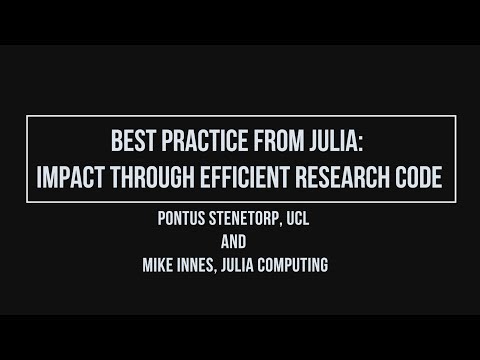Description:
Explore best practices for efficient research code using Julia in this comprehensive talk from the Alan Turing Institute. Learn how Julia addresses the challenges of bringing research projects to real-world impact, from large-scale data processing to cloud deployment and collaboration. Discover Julia's potential to streamline the innovation cycle and its applications in diverse fields such as self-driving cars and astronomy. Gain insights into Julia's community-driven development of cutting-edge tools for mathematical modeling and machine learning. Examine case studies showcasing Julia's impact in academia and industry, including projects like Celeste and the Berkeley Autonomous Race Car. Understand Julia's advantages in performance, experimentation, and scalability, as well as its package management system and growing community support. Delve into topics such as high-level routines, differential equations, numerical methods, and native Julia computing to enhance your research coding practices.
Read more

Best Practice From Julia - Impact Through Efficient Research Code
Add to list
#Mathematics
#Applied Mathematics
#Mathematical Modeling
#Computer Science
#Machine Learning
#Data Science
#Data Analysis
#Data Cleaning